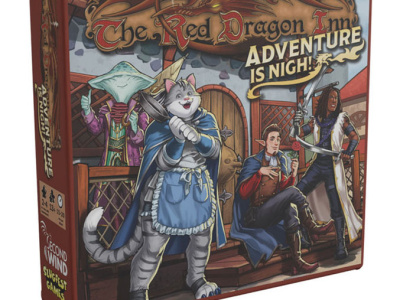Sovereign Stone, a fantasy-roleplaying world created by artist Larry Elmore and fleshed out fictionally by the best-selling novelists Margaret Weis and Tracy Hickman, is abandoning its current game-playing system in favor of the d20 system, which has been made available to third party creators by Wizards of the Coast. The folks at Sovereign Press will be rewriting and reissuing all of the current Sovereign Stone products for play in the d20 system. Their plan is to release two hardcover volumes for Gencon, which will enable players to incorporate all the subtleties of the civilizations of Sovereign Stone into the new d20 roleplaying system.
Larry Elmore, the creator of the Sovereign Stone fantasy world, is one of the top fantasy artists in the world. He provided many illustrations for the original Dungeons & Dragons series and done the covers for numerous science fiction and fantasy novels. Margaret Weis and Tracy Hickman have had numerous titles reach the New York Times best-seller list. Harper Collins has already published the first novel in their trilogy set in the Sovereign Stone world, Well of Darkness. The paperback edition is due out in September, while the second volume in the trilogy, Guardians of the Lost, will be published in hardcover in November.
The two hardcover volumes of gaming rules and background information adapting the Sovereign Stone world to the d20 rule system will be published in August in time for Gencon. The Sovereign Stone World Book will contain all the necessary information for a player to begin to roleplay in the Sovereign Stone universe. The second hardcover, Codex Mysterium, will be the sourcebook for all things magical in the world of Sovereign Stone.







